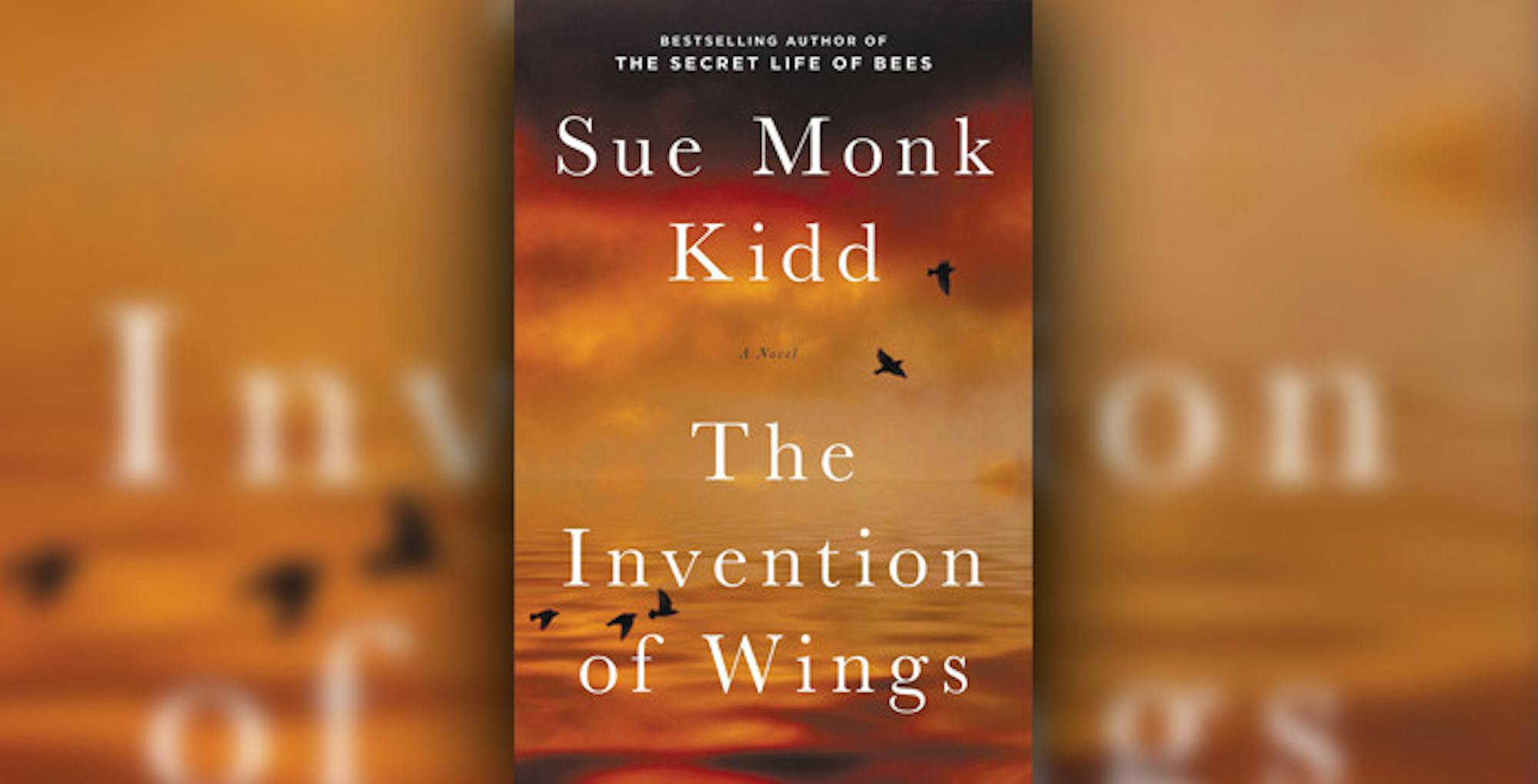
By Amy Krivoshik
Staff Writer
"We're all yearning for a wedge of sky," Sue Monk Kidd writes in her soaring new novel, The Invention of Wings, which was published in January 2014. Opening in Charleston, South Carolina in 1803, The Invention of Wings follows the lives of two women, Sarah Grimké, the daughter of a wealthy plantation owner, and Hetty "Handful" Grimké, a girl enslaved on the plantation of Sarah's father. Eloquently told in their alternating voices, The Invention of Wings artfully captures the essence of longing for freedom.
Like Kidd's previous novel The Secret Life of Bees, her latest The Invention of Wings explores a friendship that grows across pre-existing social boundaries. Based on the true story of Sarah Grimké, an early feminist and abolitionist, The Invention of Wings shows the intricacies and imperfections of friendship, portraying a realistic relationship between Hetty and Sarah.
Sarah dreams of becoming a lawyer. Hetty dreams of freedom from slavery. But the rigidly structured society into which both girls are born renders their dreams seemingly impossible. "There was a time in Africa the people could fly. Mauma told me this one night when I was 10 years old. She said, Handful, your granny-mauma saw it for herself. She say they flew over trees and clouds. She say they flew like blackbirds. When we came here, we left that magic behind," Hetty recalls in The Invention of Wings.
Through an uncertain but enduring friendship, Sarah and Hetty find their first sliver of freedom. On Sarah's 11th birthday, her parents wrap a bow around Hetty's neck and present her to Sarah as a gift. When Sarah's parents refuse to allow Sarah to free Hetty, Sarah decides to do something that was against the law at the time: she teaches Hetty to read. Sarah's defiant act, as well as Hetty's equally defiant acquisition of knowledge, sparks a bond between the two.
In each other's lives, Sarah and Hetty find reflections of themselves. Yet their differences often render their friendship unsure. While Hetty physically cannot be free, Sarah's own thoughts about her capabilities constrain her: "My body might be a slave, but not my mind. For you, it's the other way round," Hetty tells Sarah.
Even though their lives are different, what Sarah and Hetty share is an enduring longing for emancipation. As the novel traces their frayed but persisting friendship from childhood to adulthood, a sense of urgency that this dream will never come to pass heightens. Time seems to pass quickly. At the turn of a page, events that seemed to have happened yesterday in the story become events of years ago. This sense of inescapable time suggests that the dream of freedom is rapidly slipping away and readers will be anxious to know whether Sarah and Hetty ever catch up to their dreams.
Kidd maintains the girls' awareness of their differences without diminishing the strength of their bond. "People say love gets fouled by a difference big as ours. I didn't know for sure whether Miss Sarah's feelings came from love or guilt. I didn't know whether mine came from love or a need to be safe. She loved me and pitied me. And I loved her and used her. It never was a simple thing," Hetty remembers in the work.
Through imperfect friendship, Kidd's resonating prose weaves together Hetty and Sarah's unique stories, threading universal themes through their very different lives. What does it mean to be free? How does the social context of the society into which we are born influence our ideas about freedom? And finally, how can we find freedom for both others and ourselves? In exploring these questions, The Invention of Wings poignantly portrays how two seemingly powerless women strive to determine the courses of their own lives and how their uneasy but persisting friendship propels them towards their seemingly impossible dreams.
– By Amy Krivoshik, Staff Writer
Kidd Novel Paints Poignant Picture of Inequality
Sue Monk Kidd's novel The Invention of Wings tells the story of two young women who face obstacles to their dreams. | Courtesy of Viking Adult







